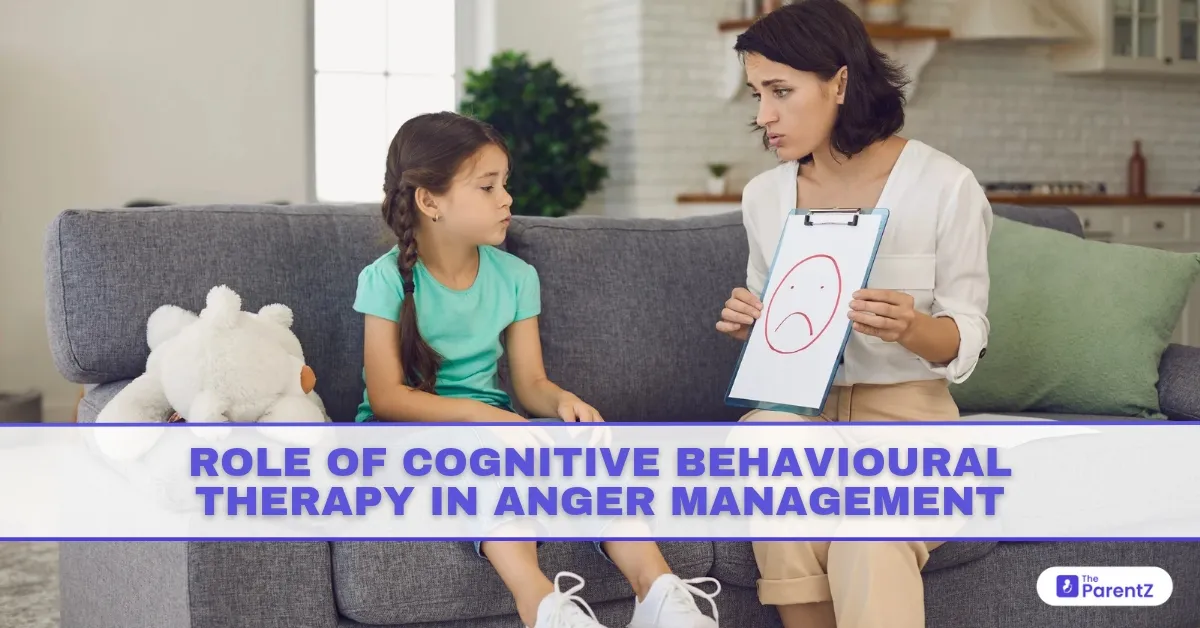Anger is a normal and sometimes necessary emotion, often serving as a response to perceived threats, frustration, or injustice. However, when anger becomes intense, frequent, or difficult to control, it can interfere with social, academic, and family functioning, particularly in children and adolescents. In such cases, psychological intervention is essential.
Cognitive Behavioural Therapy (CBT) is one of the most widely researched and effective therapeutic approaches for managing anger and emotional dysregulation. CBT focuses on identifying negative thought patterns, modifying maladaptive behaviours, and building healthier emotional responses.
Understanding Cognitive Behavioural Therapy (CBT)
Cognitive Behavioral Therapy is a structured, time-limited, and goal-oriented form of psychotherapy. It operates on the premise that a person’s thoughts, emotions, and behaviors are interconnected—and that modifying unhelpful thoughts can lead to more adaptive emotions and actions.
CBT is highly adaptable, making it suitable for children, adolescents, and adults. It is often tailored to the developmental level of the individual and can be delivered in individual, group, or family settings.
Why CBT for Anger Management?
Anger is often triggered by automatic negative thoughts or misinterpretations of a situation. Children and adolescents may lack the cognitive and emotional tools to regulate these feelings effectively. CBT addresses these core challenges by:
- Helping individuals recognize anger triggers
- Teaching strategies to reframe irrational thoughts
- Building coping skills to reduce impulsive reactions
- Encouraging problem-solving and assertive communication
Core Components of CBT in Anger Management
1. Cognitive Restructuring
Teaches individuals to identify and challenge distorted thinking patterns such as catastrophizing, overgeneralization, or personalization. For example, changing the thought “Everyone is against me” to “I felt hurt, but maybe they didn’t mean it that way.”
2. Emotional Awareness and Self-Monitoring
Involves tracking anger episodes, understanding physical signs (e.g., rapid heartbeat, clenched fists), and labeling emotions accurately.
3. Relaxation Techniques
Teaches controlled breathing, progressive muscle relaxation, and visualization to reduce physiological arousal during anger episodes.
4. Behavioural Interventions
Focuses on replacing aggressive or avoidant behaviors with more constructive actions—such as taking a break, using a calm voice, or walking away from a conflict.
5. Social Skills Training
Improves communication, empathy, and conflict-resolution skills, especially in children who struggle with peer interactions.
6. Problem-Solving Skills
Helps individuals break down problems into manageable parts, evaluate options, and choose appropriate responses rather than reacting impulsively.
Effectiveness of CBT in Managing Anger
Multiple clinical studies support the efficacy of CBT in reducing the frequency and intensity of anger episodes. Outcomes often include:
- Decreased aggression and verbal outbursts
- Improved emotional regulation
- Better school performance and peer relationships
- Reduced parental stress and improved family dynamics
CBT has also been shown to be effective when combined with other interventions, such as parent management training or medication, in certain neurodevelopmental or psychiatric conditions.
Who Can Benefit from CBT for Anger?
CBT is beneficial for individuals who:
- Experience frequent or intense anger outbursts
- Have difficulty calming down or resolving conflicts
- Show aggressive behaviors at home or school
- Have comorbid conditions like ADHD, ODD, anxiety, or depression
- Are struggling with social relationships due to irritability
When to Seek CBT for Anger Management
Professional support through CBT should be considered if anger:
- Interferes with daily life or learning
- Affects relationships with family, peers, or teachers
- Leads to physical aggression or safety concerns
- Is accompanied by sadness, anxiety, or low self-esteem
A referral can be made by pediatricians, mental health professionals, or educators after a thorough behavioral assessment.
Conclusion
Cognitive Behavioural Therapy is a scientifically backed and widely practiced intervention for managing anger in both children and adolescents. By focusing on changing thought patterns, building coping mechanisms, and improving behavior, CBT helps individuals regain control over their emotions and interactions. When initiated early, it can contribute significantly to a child’s long-term emotional and social development.








Be the first one to comment on this story.